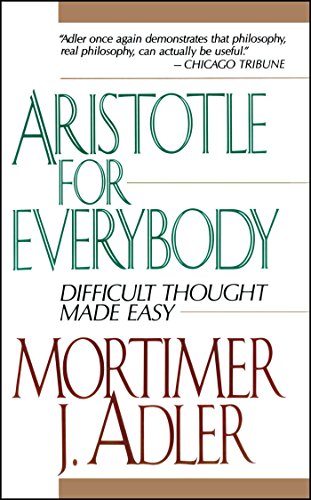The Tragedy of the Commons and Email Overload
/The Tragedy of the Digital Commons
.. and Email Overload
The “Tragedy of the Commons” refers to a famous essay written in 1833 by the British economist William Forster Lloyd who used the example of the effects of unregulated sheep grazing on common land ( known as a "common").
This idea became more widely known as a result of an article published in 1968 by Garrett Hardin that showed how the single-minded pursuit of an individual good or resource that is used and shared by many people can be destructive in the long-term.
We are going to learn about the foundation of this idea, and how it can be applied to both the Digital world in general and the Email world in particular.
The Herdsman and The Commons
Here is the example of the Herdsman and the Commons as given by Hardin in his original article (paraphrased):
Imagine several different herdsmen who have their own herds of sheep.
They all have access to a collective pasture (a “common”) that is big enough to support a large number of sheep, but not an infinite number.The herdsmen know that by adding one more sheep to their heard, they will benefit by the greater amount of wool it will bring. And the ‘cost’ of supporting just one more sheep is shared by all who use the common pasture.
Therefore, each herdsmen has a lot to gain only only a very little to lose with the addition of each sheep to their herd.
The herdsmen pursue their own self-interests, so each of them decides to bring one more sheep to the commons.
This process is repeated again and again by each herdsmen, and the herds increase progressively.
As more and more sheep are added, the vegetation is continually depleted, the pasture becomes damaged, and there is less food for the sheep to forage.
The situation becomes a tragedy when the herdsmen’s rational decision finally causes exploitation from which the pasture cannot recover.
The excessive search for the individual good has resulted in the destruction of the common good.
“Each man is locked into a system that compels him to increase his herd without limit — in a world that is limited. Ruin is the destination toward which all men rush, each pursuing his own best interest in a society that believes in the freedom of the commons. Freedom in a commons brings ruin to all.”
In fact, the opposing forces of the “individual” versus the “common interest” was actually noted by none other than Aristotle, more than 2000 years ago:
“What is common to the greatest number gets the least amount of care. Everyone thinks chiefly of his own, hardly at all of common interest.”
Although the “Tragedy of the Commons” is typically caused by a process that decreases the amount of (renewable) resources available to an increasing number of exploiters, the analogy of the Commons can also be extended to other, and more modern, analogies.
The Tragedy of the Digital Commons
The original application of The Tragedy of the Commons was applied to the physical world and to the challenges of overpopulation competing with limited physical resources. Yet the same concept can be applied to our digital shared resources (our “Digital Commons”), including Email, Social Media, and Digital Communications.
This observation was made in a 2001 Forbes article The Tragedy Of The Commons by Daniel McFadden, Professor of Economics at the University of California, Berkeley, and winner of the Nobel Prize for Economics in 2000.
“Management of the digital commons is perhaps the most critical issue of market design that our society faces”
The challenges specific to Content Marketing was highlighted by Bill Paarlberg in an article “The Tragedy of the Commons and the Death of Content Marketing”.
Content marketing is drowning in a tsunami of its own making. It’s the old tragedy of the commons playing out in new media: too many users exploit a limited resource and the resource becomes worn out. In this case the resource is people’s time and attention, and it’s been overloaded by too much content.
Similarly, the idea of the Commons was applied to the areas of Social Media and Blogging by Alan Gleeson in his article “Why Grazing Cows and Content Marketing Have More in Common Than You’d Think!”.
“Content marketing is drowning in a tsunami of its own making. It’s the old tragedy of the commons playing out in new media: too many users exploit a limited resource and the resource becomes worn out. In this case the resource is people’s time and attention, and it’s been overloaded by too much content.”
Tragedy of the Commons and Email Overload
The Tragedy of the Commons can also be applied specifically to the challenges of Email. With Email, there is an almost limitless amount of Email that can be produced with little incremental cost to sending them.
The firms that are sending the Emails are like the herdsman. They are trying to increase their “influence”, “reach”, “clicks”, “conversions”, and (ultimately) “sales” numbers, all of which is done by sending more Emails to try to reach more people.
However, the individuals that receive the Emails are the “commons”, in that they have real limits to what they can sort, filter, and process.
Looking at Email Overload in comparison to the problem faced by the Herdsman, we have:
Individual Actors: Email marketers
Shared Resource: Attention of Individual Email users
Self-Interested Behavior: Mass Marketing Impact
Tragedy: Information and Email Overload of the Recipients
The common that they are destroying is the Email Inboxes and the cognitive abilities of their recipients, who have become overloaded with the never-ending (and ever-increasing) influx of Email.
And the challenges to the recipient continue to grow and expand:
An ever-increasing volume of incoming Emails produced by content marketing firms.
Introduction of new and unique social media channels
Proliferation of digital devices into our lives (smartphones, smart devices, constant connectedness)
continual Alerts, Distractions, and Interruptions
Bill Paarlberg discussed the impact of the Commons on Email Marketing in his article In Praise of the Lowly Open Rate: Email’s Classic Metric Means More Now.
“The Tragedy of the Commons is killing content marketing. We’ve been pumping out more and more content to exploit what we assumed was a limitless resource: the attention of our audiences. Now there is just too much content, and that resource has become seriously overgrazed. Email inboxes are choking to death.”
Similarly, Nathan Zeldes, in his article The Dark Side of Information Overload, discussed the analogy between Email and The Tragedy of the Commons.
“What we have is a situation where everyone would benefit strongly from there being less email going around; yet no one is willing to – can afford to, some would put it – cut back on their own outgoing mail volume.”
Technology solutions such as SPAM filters and Email Rules can help reduce the impact of the incoming Emails and “reduce” their impact on the “Email commons”.
However, there are limits to the capabilities of these technologies, and almost no limits to the volumes that Email marketers can continue to distribute.
Ultimately, the individual must sort-through their Inboxes and attempt to make some sense of all the incoming noise.
The unfortunate result is that the Inbox recipient ends-up ignoring messages, missing important communications, or becomes cognitively impaired and overloaded, resulting in stress and a loss of productivity.
“In an information-rich world, the wealth of information means a dearth of something else: a scarcity of whatever it is that information consumes. What information consumes is rather obvious: it consumes the attention of its recipients. Hence a wealth of information creates a poverty of attention ..”
Approaches to Solving the Tragedy of the Email Overload Commons
The challenges around the “Information Overload and Email Commons” can be difficult to resolve.
But here are few time-tested approaches that can be employed in the “fight” against Information and Email Overload.
Key Email and Information Overload approaches still work:
Invest in Email Management Training
Implement Corporate Standards of Email Behavior
Gain Top-Down support on cultural changes
Top-down support from corporate leadership and cultural changes are perhaps some of the most impactful (and difficult) solution approaches to implement.
“I’m not saying all causes of the Information Overload problem stem from this “Dark side”. There are other causes, among them sub‐optimal tools, insufficient technical training and poor English language skills (especially in global companies). But the issues related to a culture of mistrust are the most difficult to overcome.”
Email is a perfect example of an application of The Tragedy of the Digital commons. There is little to no cost to send Emails, and it is in the interest of the sender to continue to send more and more to achieve their goals.
But there is a limit on our own cognitive abilities, attention, and time that is being eroded by the growing barrage of these messages.
As with most challenges of resources associated with the “commons”, solutions are best found through widespread recognition of the issue, a decision by the masses that it is an issue worth addressing, and through a multi-pronged solution approach that employs:
Education
Regulation
Technology
Cultural Shift
What are your views on the challenges of the Digital Commons?
What approaches do you think can be truly effective over the long-term?
Disclosure: Some of the links on this page contain “affiliate links”, which means I may receive (a fairly small) commission if you make a purchase through the link, but there is no additional cost to you. Please consider doing so as a way to help support this site.



















